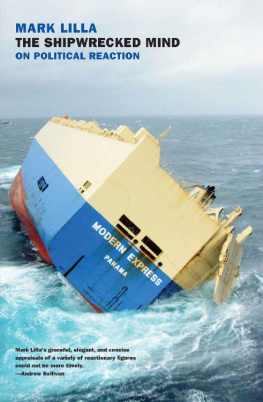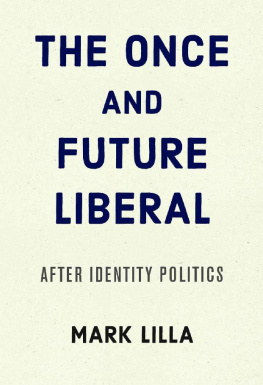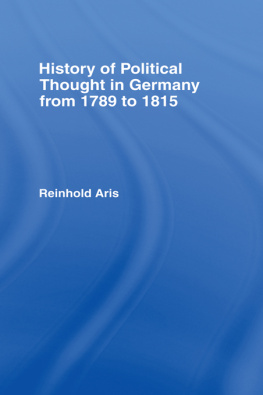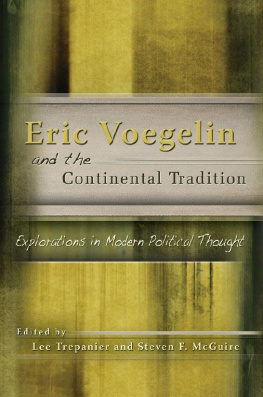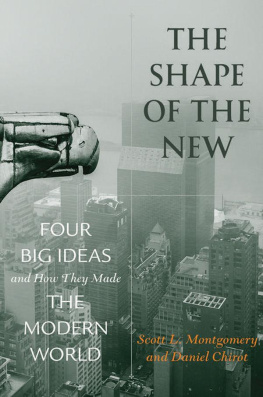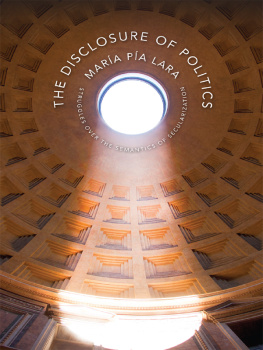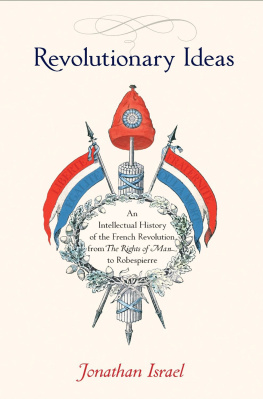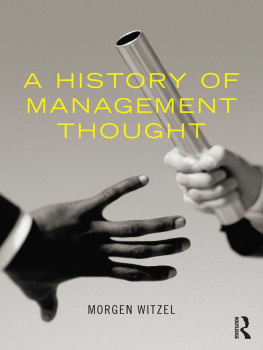The Shipwrecked Mind
On Political Reaction
Mark Lilla
NEW YORK REVIEW BOOKS

New York
THIS IS A NEW YORK REVIEW BOOK
PUBLISHED BY THE NEW YORK REVIEW OF BOOKS
435 Hudson Street, New York, NY 10014
www.nyrb.com
Copyright 2016 by Mark Lilla
Copyright 2016 by NYREV, Inc.
All rights reserved.
Financial support was made possible by the French government and managed through the Investissements davenir program of the Agence Nationale de la Recherche
(ANR-11-LABX-0027-01 Labex RFIEA+).
Cover design by Katy Homans
Cover image: Marine Nationale/ECPAD/unknown photographer/ 2016
Library of Congress Cataloging-in-Publication Data
Names: Lilla, Mark, author.
Title: The shipwrecked mind : on political reaction / by Mark Lilla.
Description: New York : New York Review Books, [2016] | Series: New York review books
Identifiers: LCCN 2016011770 | ISBN 9781590179024 (paperback)
Subjects: LCSH: Political sciencePhilosophy. | Political psychology. | Religion and politics. | BISAC: SOCIAL SCIENCE / Sociology of Religion. | PHILOSOPHY / Essays. | PHILOSOPHY / Religious.
Classification: LCC JA71 .L55 2016 | DDC 320.01dc23
LC record available at https://lccn.loc.gov/2016011770
ISBN 978-1-59017-903-1
v1.0
For a complete list of titles, visit www.nyrb.com or write to:
Catalog Requests, NYRB, 435 Hudson Street, New York, NY 10014
To A. S. and D. L.
compagnons de route
Contents
Introduction
THE SHIPWRECKED MIND
To the eyes that have dwelt on the past, there is no thorough repair.
George Eliot
WHAT IS REACTION ? Consult any decent university library and you will find hundreds of books in all the worlds major languages on the idea of revolution. On the idea of reaction you will be hard put to find a dozen. We have theories about why revolution happens, what makes it succeed, and why, eventually, it consumes its young. We have no such theories about reaction, just the self-satisfied conviction that it is rooted in ignorance and intransigence, if not darker motives. This is bewildering. The revolutionary spirit that inspired political movements across the world for two centuries may have died out, but the spirit of reaction that rose to meet it has survived and is proving just as potent a historical force, from the Middle East to Middle America. This irony should pique our curiosity. Instead it arouses a kind of smug outrage that then gives way to despair. The reactionary is the last remaining other consigned to the margins of respectable intellectual inquiry. We do not know him.
The term reaction has an interesting history. It first entered the vocabulary of European political thought in the eighteenth century, when it was taken over from the scientific treatises of Isaac Newton. In his highly influential work TheSpirit of the Laws Montesquieu portrayed political life in dynamic terms as an endless series of actions and reactions. He recognized revolution as one such political act, but considered it rare and unforeseeable. One revolution might transform a monarchy into a democracy, another might turn a democracy into an oligarchy. There was no way of predicting the outcome of revolutions, or the kind of reactions they might provoke.
The French Revolution changed the meaning of both terms. No sooner had the revolt broken out in Paris than observers began developing stories that would make the Revolution the pivot of world history. The Jacobins reset the calendar to Year I to mark the break, and for good measure renamed all the months so that no citizen would confuse past and present. All previous history took on meaning as a preparation for this event, and all future action could now be oriented toward historys predetermined end, which was human emancipation. What would political life then look like? Hegel thought it would mean the establishment of modern bureaucratic nation-states; Marx imagined a communist nonstate populated by freemen who would fish in the morning, raise cattle in the afternoon, and criticize after dinner. These differences were less important, though, than their confidence in the inevitability of arrival. The river of time flows in one direction only, they thought; reversing upstream is impossible. During the Jacobin period anyone who resisted the rivers flow or displayed insufficient enthusiasm about reaching the destination was labeled a reactionary. The term acquired the negative moral connotation it still retains today.
Over the course of the nineteenth century, though, it became apparent that not all critics of the Revolution were reactionaries in the precise sense. Reformist liberals like Benjamin Constant, Madame de Stal, and Tocqueville judged the collapse of the ancien rgime to have been unavoidable, but not the Terror that followed, which meant that the promise of the Revolution might still be redeemed. Conservatives like Edmund Burke rejected the radicalism of the Revolution but especially the historical myth that subsequently developed around it. Burke considered the idea of history as an impersonal force carrying us to fixed destinations to be both false and dangerous, since it could be used to justify crimes in the name of the future. (Liberal and socialist reformers had an additional worry, which was that it would encourage passivity.) History, for Burke, develops slowly and unconsciously over time, with results no one can predict. If time is a river, then it is like the Nile delta, with its hundreds of tributaries branching out in every imaginable direction. The trouble starts when rulers or ruling parties think they can anticipate where history is already headed. This was illustrated by the French Revolution itself, which instead of ending European despotism had the immediate unintended consequences of putting a Corsican general on an imperial throne and giving birth to modern nationalismoutcomes no Jacobin foresaw.
Reactionaries are not conservatives. This is the first thing to be understood about them. They are, in their way, just as radical as revolutionaries and just as firmly in the grip of historical imaginings. Millennial expectations of a redemptive new social order and rejuvenated human beings inspire the revolutionary; apocalyptic fears of entering a new dark age haunt the reactionary. For early counterrevolutionary thinkers like Joseph de Maistre, 1789 marked the end of a glorious journey, not the beginning of one. With astonishing speed the solid civilization that was Catholic Europe was reduced to a magnificent shipwreck. This could not have been an accident. To explain it Maistre and his many progeny became adepts at telling a sort of horror story. It recounted, often melodramatically, how centuries of cultural and intellectual developments culminated in the Enlightenment, which rotted the ancien rgime from within, so that it broke to pieces the moment it was challenged. This story then became the template for reactionary historiography in Europe, and soon around the world.
Post hoc, propter hoc is the reactionarys profession of faith. His story begins with a happy, well-ordered state where people who know their place live in harmony and submit to tradition and their God. Then alien ideas promoted by intellectualswriters, journalists, professorschallenge this harmony and the will to maintain order weakens at the top. (The betrayal of elites is the linchpin of every reactionary story.) A false consciousness soon descends on the society as a whole as it willingly, even joyfully, heads for destruction. Only those who have preserved memories of the old ways see what is happening. Whether the society reverses direction or rushes to its doom depends entirely on their resistance. Today political Islamists, European nationalists, and the American right tell their ideological children essentially the same tale.
Next page
